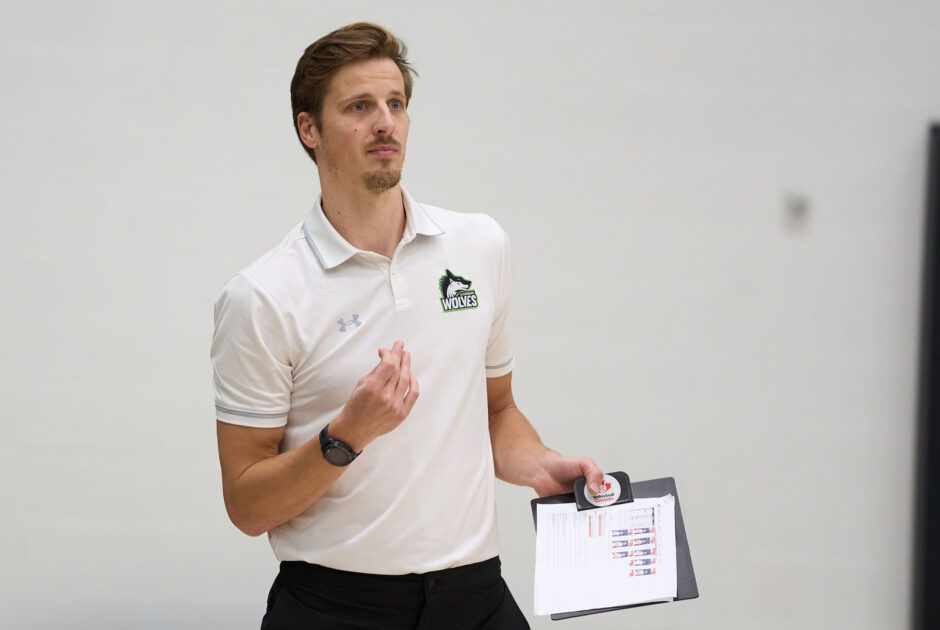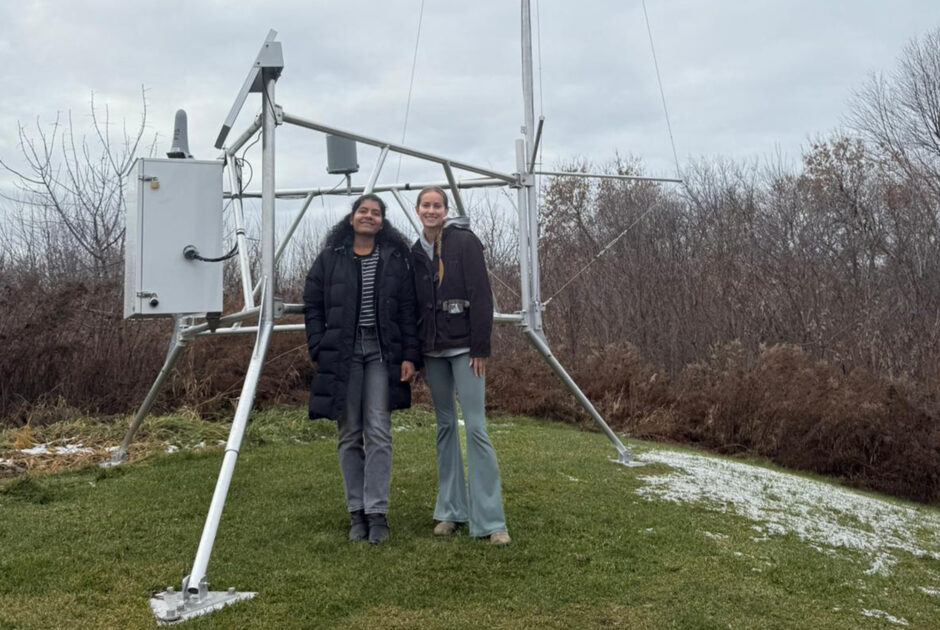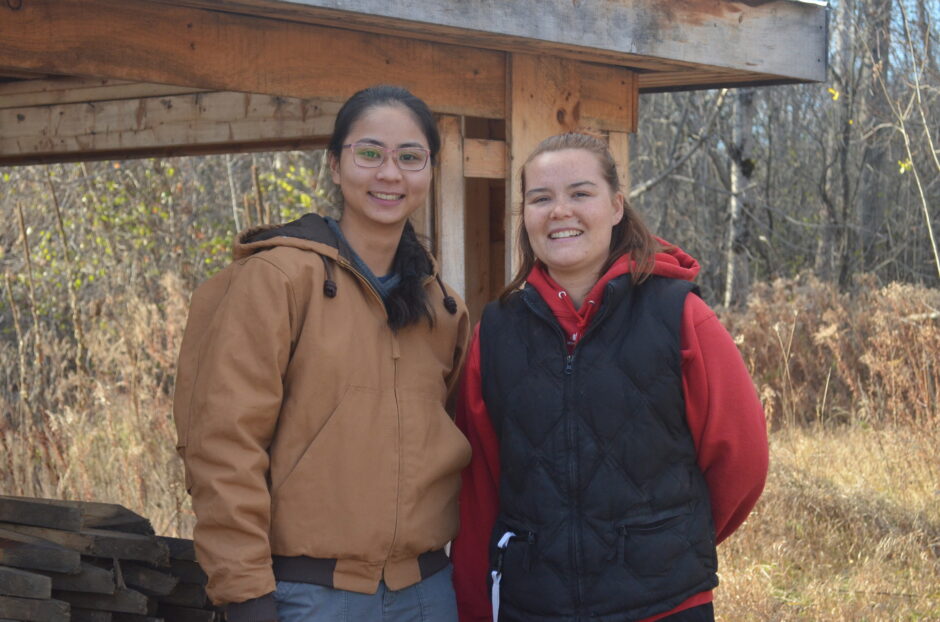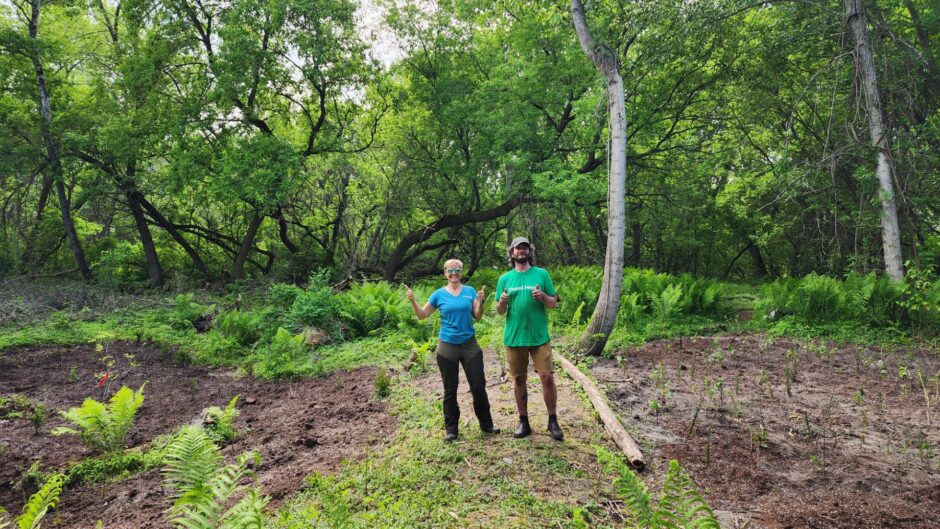College community reacts to the deadly earthquake in Turkey and Syria
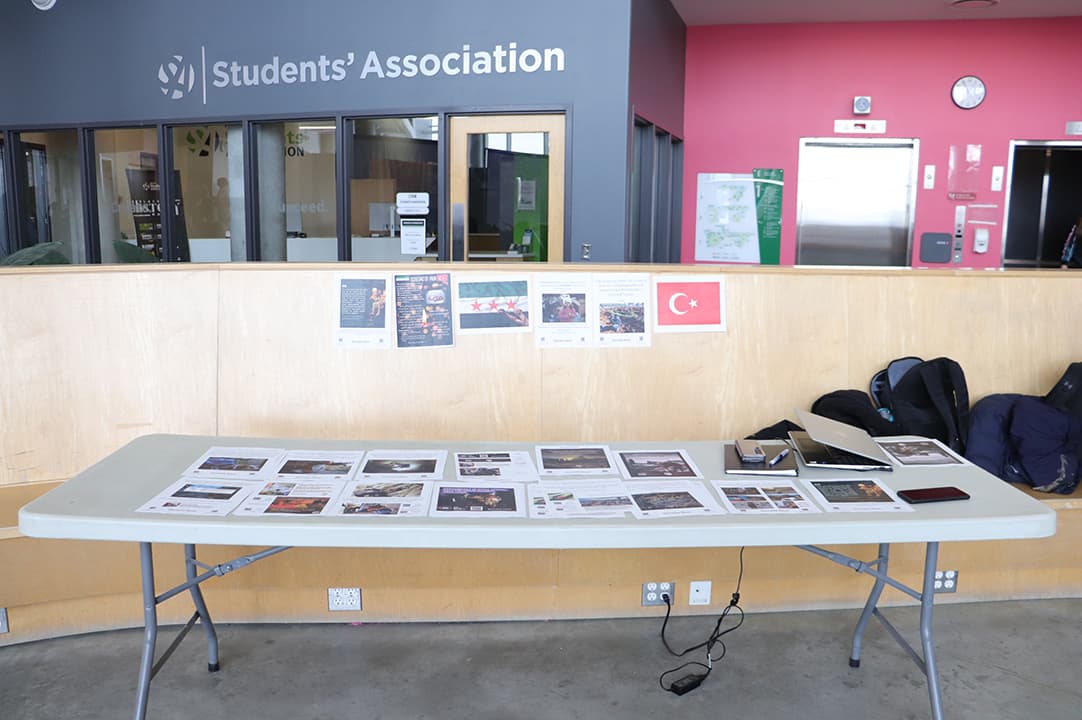
On the morning of Feb. 16, Lina Alalwani, a third-year student in the early learning and community development program, stood at a small table in the Student Commons building with the flags of Syria and Turkey and some printed news articles in front of her.
Just ten days before, on Feb. 6 at 4:17 a.m., while people were inside sleeping, a powerful 7.8 magnitude earthquake hit southern Turkey and northern Syria. Some made it out, but 47,000 people are known to have died.
“I asked for that [corner] and they were so helpful,” she said about Algonquin College. “They gave me a space to address the Algonquin College community directly. It is helpful but the people there need more. They really need more. They are suffering.”
Due to the political scene in Syria, Alawani explained, not enough support has been dispatched in comparison to Turkey. The least Alalwani felt she could do is inform the college community about the situation.
The World Health Organization’s press release states that US$43 million is required to support 26 million affected people.
“We are here to tell people what happened and encourage them to donate,” said Alalwani.
The Turkish and Syrian students are deeply affected by the tragedy. Fifty-nine international students from Turkey study at Algonquin College. Algonquin Times could not get the number of students affected by the tragedy due to privacy reasons.
As soon as the recruitment team at Algonquin College that works with students from Turkey heard the news they reached out. “Christine Peachey, associate director of international operations sent out a communication to all Turkish students expressing our concerns and sympathies and advising/informing them of the range of counselling and support services offered by the college,” said Damien Dunne, associate director of international recruitment and business development.
Claude Brulé, on behalf of the Algonquin College team, sent an email to students from both countries on Feb. 7, 2023. The email included all the necessary links for those who need support.
Pinar Deniz Yapici, counsellor at the embassy of Turkey in Ottawa, says he has not heard from any Algonquin College students related to the earthquake but they are ready to help.
Canada and Turkey cooperated at different bureaus to ensure proper support was dispatched to impacted areas. In such extraordinary situations, the Turkish Embassy does not distinguish between Turkish, Syrian, students or ordinary citizens.
“As you can imagine, you have to act very quickly,” said Yapici. “So we cannot differentiate between different groups. We have educational sections in Toronto focused specifically on our students. But this earthquake is a totally different thing, so everybody is involved.”
The current harsh climate conditions in the two countries mean the situation is especially difficult for the people there. They need winter tents, sleeping bags, heaters and generators. As they hadn’t faced a tragedy like this in over 200 years, according to Yapici, they were not prepared. All organizations are mobilized to help the two countries overcome this tragedy.
“It is not easy. This area of the country is not popular, so people have limited resources,” said Gizem Erkaya, a level-four game development student from Izmir, Turkey. “They just lost everything and now with inflation and other things, it is impossible to get what you lost.”
Erkaya thinks the best way to support impacted students is to raise money to buy plane tickets from Canada so they can go back to visit their families.
Students in Canada had only social media to get updates on the situation. For Erkaya, who was following this way from her home here in Ottawa, she observed how social media helped volunteer first responders get to the scene faster than the government.
“Through Twitter, they could follow the people stuck inside the apartments, but just imagine how you can remove more than two tons of bricks. Yeah, it’s not possible with the hands,” said Erkaya.
Haya Kayali, a Syrian dental hygiene student at Algonquin College, wishes the Students’ Association had done more after the earthquake to let the college community know.
“The Students’ Association didn’t mention anything about the earthquake that happened in Syria or Turkey,” said Kayali. “At least, if they let students know what is happening in their countries, maybe impacted students would have then asked for support.”
Kayali, whose close friend lost her parents in the earthquake, learned the news on social media. According to Kayali, whose aunt’s house collapsed, moral support is not enough. People lost their houses and families, therefore, financial support is more important.
When Alalwani heard the news, she called her family who were safe, but they were sleeping in the open air in subzero conditions.
“Just help,” she said with emotion in her voice. “Please try to help, try to support, donate. It’s like, even $1 will be a huge contribution. And instead of having coffee today, just give this amount for trusted organizations working on the ground.”
Any member of the community willing to help can look at the list of needed items created by the Turkish Embassy in Ottawa to help this humanitarian crisis or go to the World Health Organization‘s fundraising site.





